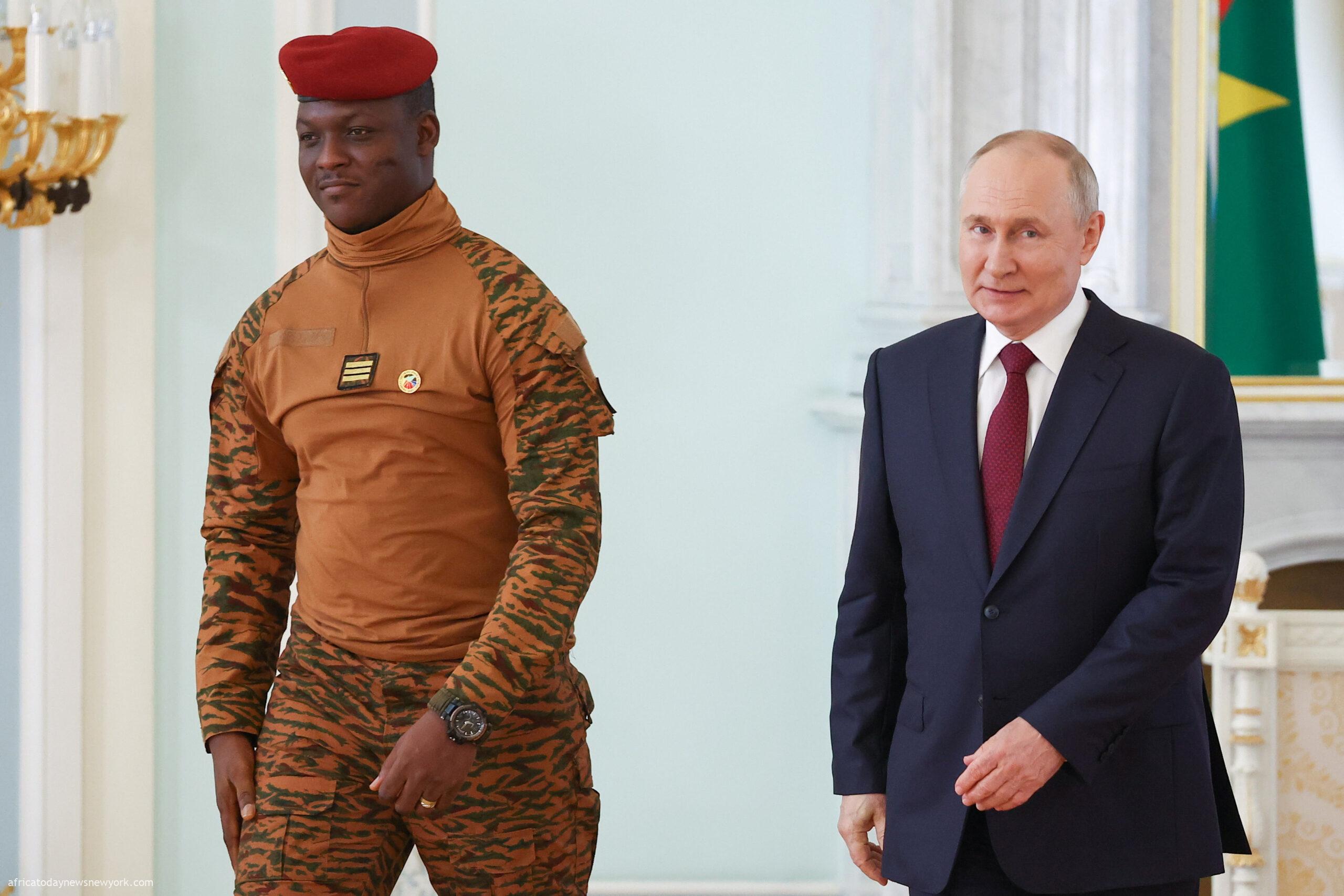The government of Burkina Faso confirmed on Friday the conclusion of an agreement with Russia for the development of a nuclear power plant to fulfill the energy needs of its people, a significant portion of whom still lack access to electricity.
As of last year, Burkina Faso has been under the authority of a military junta and has actively pursued a more varied set of international alliances, notably drawing nearer to Russia.
‘The government of Burkina Faso has signed a memorandum of understanding for the construction of a nuclear power plant,’ it said in a statement.
‘The construction of this nuclear power plant in Burkina Faso is intended to cover the energy needs of the population,’ it added.
The signing ceremony took place at the Russian Energy Week in Moscow, with the presence of Burkina Faso’s energy minister Simon-Pierre Boussim and Nikolay Spassky, the deputy director general of Russia’s state atomic energy agency Rosatom.
The document ‘fulfils the wish of the president of (Burkina) Faso, Captain Ibrahim Traore, expressed last July at the Russia-Africa summit during a meeting with his Russian counterpart Vladimir Putin,’ the statement said.
Rosatom said in a statement that ‘the memorandum is the first document in the field of the peaceful use of atomic energy between Russia and Burkina Faso.’
The agreement established the basis for collaboration, with a focus on the utilization of nuclear energy in sectors such as industry, agriculture, and medicine.
Read also: Burkina Faso Authorities Detain Four Officers Over Foiled Coup
The African Development Bank reported that slightly less than 23 percent of Burkina Faso’s populace had electricity access by the end of 2020.
‘We plan, if we can, to build nuclear power plants by 2030, in order to solve the problem of the energy deficit,’ Russia’s TASS news agency quoted Boussim as saying on Thursday.
‘Our challenge is to double our electricity production by 2030, which will allow us to boost the industrialisation of Africa,’ he added.
While harnessing electricity through local hydroelectric and solar power sources, Burkina Faso also relies on imports from neighboring Ivory Coast and Ghana for a substantial portion of its energy supply.
South Africa hosts the only nuclear power plant on the African continent, located near Cape Town.
Since a coup in September 2022, Burkina Faso has been under the governance of a military junta, resulting in the country’s gradual detachment from France, its historical ally and former colonial ruler.
Seeking fresh alliances, Ouagadougou has forged a closer bond with Moscow.
At a summit in Saint Petersburg in July, Putin stated that Moscow would supply free grain to six African nations, including Burkina Faso, in the months to follow.
In early September, an official Russian delegation paid a visit to Ouagadougou to discuss the potential for strengthening military cooperation with the ruling junta.
Throughout the years, Burkina Faso has confronted deadly jihadist violence, resulting in the deaths of over 17,000 civilians and soldiers, and the displacement of over two million individuals.

